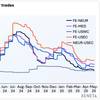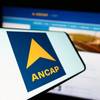Maritime innovations with environmental sensitivity will be showcased at a research conference November 9 and 10 aboard the Queen Mary. Sponsored by the Center for Commercial Deployment of Transportation Technologies (CCDoTT), the conference presenters will detail the following projects with environmental advantages:
A Magnetic Levitation (Maglev) freight corridor to run from the Ports of LA/Long Beach to remote cargo processing sites inland, thus reducing traffic congestion by running on its own dedicated track. The Maglev system eliminates the pollution associated with typical internal combustion engines because it runs on electricity. CCDoTT’s freight corridor concept has already been hailed by California State Senator Alan Lowenthal whose 27th District encompasses the Port area.
Short Sea Shipping along the West Coast, a system of cargo transit that would use the Pacific Ocean instead of local highways, also reducing congestion. Such systems are already in limited use on the East Coast and elsewhere.
Alternate-Shipboard Powering Systems for high-speed cargo ships. CCDoTT’s research has focused on very fast ships which require enormous amounts of energy. A wide-ranging and careful assessment of technical, economic, social, and political variables suggests that nuclear power may be the only viable fuel for this type of cargo transport. This project will assess research and other information related to a high-speed nuclear powered ship and a designated High Speed Trans-Pacific Service with ships employing a highly advanced and conceptual Gas Cooled Reactor nuclear power technology.
The event, named IMPACT 2005, is a technology-transfer conference showcasing the federally funded dual-use maritime technologies developed over the past several years by CCDoTT. Both commercial shipping and defense transport industries will meet at the Queen Mary to hear about CCDoTT’s unique research.
In addition to the above research, other presentations at the conference will include specific findings and ongoing studies in the following areas:
• A high-speed trimaran which could launch C-130J aircraft to deliver 20-ton combat vehicles as part of a Seabase system for the military.
• A dual military/commercial Agile Port Demonstration at the Port of Tacoma, building on a previous pilot test that resulted in a 300% increase in marine terminal throughput.
• A very stable mobile ocean platform, designed to support a Seabase effort, which could be moored or self-propelled through the open ocean.
• A concept test for high-speed pentamarans for commercial and military cargo.
• A Power Projection Support Platform to test commercial and military cargo movement concepts and develop software for simulation and testing of agile supply networks.
The 1-1/2 day conference is open to the public at no charge. Pre-registration is required, as seating will be limited. Registration information is available at CCDoTT’s website, www.ccdott.org.
Sponsored Content
Experience Custom Yacht Signs and Designs Tailored to Perfection!

Subscribe for
Maritime Reporter E-News
Maritime Reporter E-News is the maritime industry's largest circulation and most authoritative ENews Service, delivered to your Email five times per week









